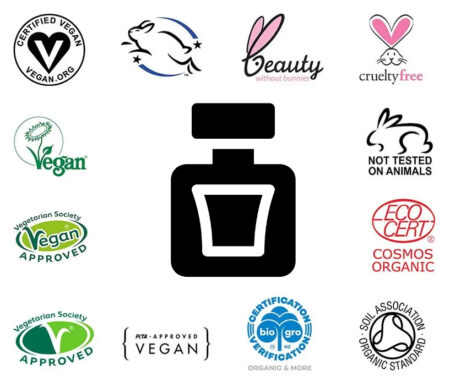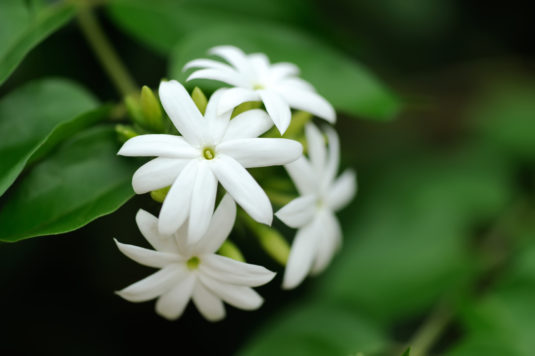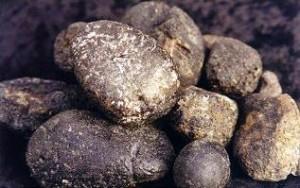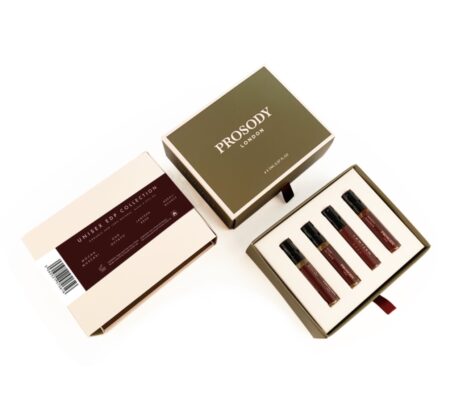
What does Vegan Perfumes really mean? image by Kershen Teo
More and more people want clean beauty products with more natural ingredients and few if any synthetic ingredients, even when it comes to the fragrance component (which is generally only a small percentage of the mix in a beauty product such as a shampoo or skin cream). People who want this in beauty products also want to try all-natural perfumes too (at least, if they are aware of the extent to which most perfumes on the market contain little to no natural ingredients). In response to this growing demand some perfume brands are labelling their products as vegan and sustainable; but if you dig a little deeper you realise they generally satisfy both criteria only superficially and for purely marketing purposes. So when you shop for a natural product and read the buzz words ‘vegan’ and ‘sustainable’ do you think hurray, that ticks my clean beauty box? Sadly, the reality may be rather different. This article explores the facts behind vegan and sustainable perfume, explains what is potentially misleading and how these products may be simply business as usual and no different from the next brand which doesn’t make these claims.

Clean Beauty is booming, how is the fragrance industry responding to that? via common use
Not all vegan perfumes are natural
The criteria for the Vegan Society to regard a perfume as vegan are simply that no products of animal origin are used in its manufacture. Veganism excludes animal or animal-based ingredients but it doesn’t positively mandate plant-based or natural ingredients. Faux leather, for example, the substitute material used by vegans for items like shoes and purses, is essentially plastic. Man-made. Synthetic. Just because we are used to seeing food products labelled vegan, signifying all vegetable (and presumably all natural) it’s easy to assume ‘vegan perfume’ must be plant based. but that is quite likely often not the case. The vast majority of perfumes today are very largely synthetic; they use aromachemicals which are chemically pure but often manufactured as by-products of petroleum. In other words, these vegan materials are no more natural than faux leather. Plant-based materials in perfumery are actually used as little as possible in the majority of commercial perfumes because they are often costly, limited in supply and may vary in quality from batch to batch and harvest to harvest. All this adds cost, sometimes unpredictably, to the manufacturing process and that kind of uncertainty is anathema to the finance guys (and investors) at the big perfume makers.
Is calling synthetic perfume vegan a kind of ‘green washing’? I would say so.
At best it exploits a loophole in green labelling. True natural perfumes ought not only to be petroleum-free but also plant-based and non-gmo. Your skin is an organ that can absorb chemicals it comes in contact with so to make products that are safe and clean we must ensure a minimum of potentially harmful materials in our bottle.

Jasmine common use photo
But there’s another more compelling reason I choose natural botanicals any day; its because I firmly believe they are infinitely more beautiful though harder to compose with. Try comparing natural jasmine absolute to a synthetic. With the synthetic you get a head-space sensation whilst the natural essence reaches into your groin area (jasmine has long been regarded as aphrodisiac). Similarly, try commercial oud substitute and you will get a one-dimensional burned plastic scent but a natural oud would give you layers of pleasure from woody, honeyed and spicy to cheesy and animalic; it will transport you into a totally different dimension. This is why perfumers love natural ingredients so much. We all want to make art with these incredible naturals with their inherent vitality and complexity. Lovers of naturals cannot be happy with a synthetic substitute; it’s the equivalent for us of only ever hearing music on a cheap radio instead of going to a live concert.

ambergris wikimedia
Animal-free perfume is not hard to find – but may be entirely synthetic
Few if any perfumes sold widely today still include animal ingredients. Ambergris is rare and expensive. Civet is too cruel at industrial scale. Even if there is a sustainable angle on castoreum (because in Canada they have to cull beavers to reduce the impact on trees, castoreum is only a by-product and the idea of using it doesn’t really sit well with me. The African stone or hyraceum, supposedly is only a stone with a deposit formed of dried animal urine. It only occurs in the wild and technically speaking is close to the vegan requirements since animals are not harmed or exploited in its production. Vegans don’t to my knowledge object to the use of animal dung as fertiliser for plants, although presumably this depends on whether the productive animals are exploited in other ways.
The fragrance industry almost without exception has moved away from animal ingredients not only because of their cost but also because the industry has become very good at imitating anything worthwhile in the olfactory spectrum, as well as creating powerful and unexpected novelties not found in nature such as Iso E Super. You could argue their approach is ethically sounder but it robs the world of a beauty that has been cultivated for hundreds and thousands of years, and of a vast network of specialist growers and distillers all of whom have a right to pursue their remarkable craft and to perpetuate their profound knowledge of horticulture and materials. For all the brilliance and originality of the finest contemporary synthetic perfumes there must still be a place for continuing exploration and creativity within the all-natural space.
As for the animalic group of ingredients, they are amazing modifiers in a perfume blend, not only fixing well but lending a sensual dimension and keeping things light yet stable, avoiding heavy base note ingredients which easily kill all the charm and simplicity of a blend. Without them natural perfumery is impoverished, to a degree. Yet without constraints there is no art; part of the joy of composition lies in overcoming perennial challenges by unexpected means after long experiment and reflection. As a natural perfumer, my choice of going animal free is partly faith driven. I’m a Buddhist with a small b, (because I’m not a strict vegetarian, I believe in eating a balanced diet for health reasons). I’m only vegetarian on certain days of the month according to the Chinese Buddhist calendar.
I subscribe to the idea of living with respect to all animal life and not adding more harm and killing of animals beyond what we need for food sustenance. I know that’s a somewhat mumbo jumbo excuse, not a clear-cut absolute belief. So that’s the dilemma for a natural perfumer; do I go vegan and add no animal ingredients when they play such a critical role? I believe there are many ways to substitute, but that’s a subject to cover in another Notes from The Lab essay.

The Beauty of Natural Ingredients by Kershen Teo©
Not all vegan perfumes are sustainable
So a vegan, sustainable perfume could simply be made with 100% petroleum derived synthetic aromachemicals, which is the case for nearly all mass market perfumes. If it uses only synthetic ingredients, it can call itself sustainable because the ingredients don’t involve taking up land use needed for precious food crops or conversely set aside for biodiversity rewilding. This misuse of terms allows any company to jump onto the green-washing band wagon. True sustainability is using no petroleum products at all, if we are to minimise our use of fossil fuel.
Conclusion
If as a perfumer you are guided by the beauty of natural ingredients then you choose that approach not to meet vegan precepts but because you believe those ingredients make intrinsically more satisfying perfumes than petroleum-derived alternatives. Any health or environmental gain from this artistic choice is only a by-product. If on the contrary your perfumes are loaded with synthetics then you may also be deemed to make vegan perfumes but only because nothing in your work is plant based.
Disclaimer: Opinions and perspective on all-natural vs. synthetics is the author’s
–Kershen Teo, Contributor and Natural Perfumer for Prosody London

Thanks to Keshen Teo of Prosody London, we have a draw for a discovery set of four vegan sustainable perfumes in the USA only for one registered. To be eligible please leave a comment about what you learned or found interesting about Kershen Teo’s article on the truth about vegan and sustainable perfumes and if that matters to you. Draw closes 10/20/2022
Please like The Series on Facebook here and your comment will count twice.
Follow us on Instagram @cafleurebonoffical @prosodylondon @indigoperfumery
Prosody London is available in the USA at Indigo Perfumery
Please read Professional Perfumer Sherri Sebastian for Provision Scents and Sebastian Signs Sherri Sebastian’s Notes From the Lab essay on Clean Beauty
Please read Professional Perfumer Darryl Do and owner of Delbia Do’s Notes From The Lab article Is your Perfume all-natural
This is our Privacy and Draw Rules Policy
We announce the winners only on our site and on our Facebook page, so like Çafleurebon and use our blog feed … or your dream prize will be just spilled perfume
